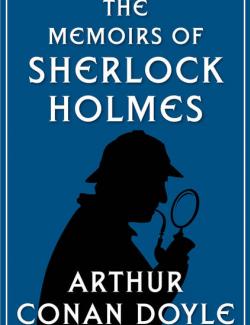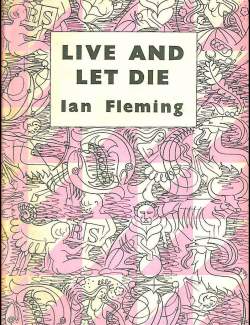(Чтобы переводить слова на русский язык и добавлять в словарь для изучения, щелкаем мышкой на нужное слово).
Silver Blaze "I am afraid, Watson, that I shall have to go," said Holmes, as we sat down together to our breakfast one morning. "Go! Where to?" "To Dartmoor; to King's Pyland." I was not surprised. Indeed, my only wonder was that he had not already been mixed upon this extraordinary case, which was the one topic of conversation through the length and breadth of England. For a whole day my companion had rambled about the room with his chin upon his chest and his brows knitted, charging and recharging his pipe with the strongest black tobacco, and absolutely deaf to any of my questions or remarks. Fresh editions of every paper had been sent up by our news agent, only to be glanced over and tossed down into a corner. Yet, silent as he was, I knew perfectly well what it was over which he was brooding. There was but one problem before the public which could challenge his powers of analysis, and that was the singular disappearance of the favorite for the Wessex Cup, and the tragic murder of its trainer. When, therefore, he suddenly announced his intention of setting out for the scene of the drama it was only what I had both expected and hoped for. "I should be most happy to go down with you if I should not be in the way," said I. "My dear Watson, you would confer a great favor upon me by coming. And I think that your time will not be misspent, for there are points about the case which promise to make it an absolutely unique one. We have, I think, just time to catch our train at Paddington, and I will go further into the matter upon our journey. You would oblige me by bringing with you your very excellent field-glass." And so it happened that an hour or so later I found myself in the corner of a first-class carriage flying along en route for Exeter, while Sherlock Holmes, with his sharp, eager face framed in his ear-flapped traveling cap, dipped rapidly into the bundle of fresh papers which he had procured at Paddington. We had left Reading far behind us before he thrust the last one of them under the seat, and offered me his cigar-case. "We are going well," said he, looking out the window and glancing at his watch. "Our rate at present is fifty-three and a half miles an hour." "I have not observed the quarter-mile posts," said I. "Nor have I. But the telegraph posts upon this line are sixty yards apart, and the calculation is a simple one. I presume that you have looked into this matter of the murder of John Straker and the disappearance of Silver Blaze?" "I have seen what the Telegraph and the Chronicle have to say." "It is one of those cases where the art of the reasoner should be used rather for the sifting of details than for the acquiring of fresh evidence. The tragedy has been so uncommon, so complete and of such personal importance to so many people, that we are suffering from a plethora of surmise, conjecture, and hypothesis. The difficulty is to detach the framework of fact—of absolute undeniable fact—from the embellishments of theorists and reporters. Then, having established ourselves upon this sound basis, it is our duty to see what inferences may be drawn and what are the special points upon which the whole mystery turns. On Tuesday evening I received telegrams from both Colonel Ross, the owner of the horse, and from Inspector Gregory, who is looking after the case, inviting my cooperation. "Tuesday evening!" I exclaimed. "And this is Thursday morning. Why didn't you go down yesterday?" "Because I made a blunder, my dear Watson—which is, I am afraid, a more common occurrence than any one would think who only knew me through your memoirs. The fact is that I could not believe it possible that the most remarkable horse in England could long remain concealed, especially in so sparsely inhabited a place as the north of Dartmoor. From hour to hour yesterday I expected to hear that he had been found, and that his abductor was the murderer of John Straker. When, however, another morning had come, and I found that beyond the arrest of young Fitzroy Simpson nothing had been done, I felt that it was time for me to take action. Yet in some ways I feel that yesterday has not been wasted." "You have formed a theory, then?" "At least I have got a grip of the essential facts of the case. I shall enumerate them to you, for nothing clears up a case so much as stating it to another person, and I can hardly expect your cooperation if I do not show you the position from which we start." I lay back against the cushions, puffing at my cigar, while Holmes, leaning forward, with his long, thin forefinger checking off the points upon the palm of his left hand, gave me a sketch of the events which had led to our journey. "Silver Blaze," said he, "is from the Somomy stock, and holds as brilliant a record as his famous ancestor. He is now in his fifth year, and has brought in turn each of the prizes of the turf to Colonel Ross, his fortunate owner. Up to the time of the catastrophe he was the first favorite for the Wessex Cup, the betting being three to one on him. He has always, however, been a prime favorite with the racing public, and has never yet disappointed them, so that even at those odds enormous sums of money have been laid upon him. It is obvious, therefore, that there were many people who had the strongest interest in preventing Silver Blaze from being there at the fall of the flag next Tuesday. "The fact was, of course, appreciated at King's Pyland, where the Colonel's training-stable is situated. Every precaution was taken to guard the favorite. The trainer, John Straker, is a retired jockey who rode in Colonel Ross's colors before he became too heavy for the weighing-chair. He has served the Colonel for five years as jockey and for seven as trainer, and has always shown himself to be a zealous and honest servant. Under him were three lads; for the establishment was a small one, containing only four horses in all. One of these lads sat up each night in the stable, while the others slept in the loft. All three bore excellent characters. "John Straker, who is a married man, lived in a small villa about two hundred yards from the stables. He has no children, keeps one maidservant, and is comfortably off. The country round is very lonely, but about half a mile to the north there is a small cluster of villas which have been built by a Tavistock contractor for the use of invalids and others who may wish to enjoy the pure Dartmoor air. Tavistock itself lies two miles to the west, while across the moor, also about two miles distant, is the larger training establishment of Mapleton, which belongs to Lord Backwater, and is managed by Silas Brown. In every other direction the moor is a complete wilderness, inhabited only by a few roaming gypsies. Such was the general situation last Monday night when the catastrophe occurred. "On that evening the horses had been exercised and watered as usual, and the stables were locked up at nine o'clock. Two of the lads walked up to the trainer's house, where they had supper in the kitchen, while the third, Ned Hunter, remained on guard. At a few minutes after nine the maid, Edith Baxter, carried down to the stables his supper, which consisted of a dish of curried mutton. She took no liquid, as there was a water-tap in the stables, and it was the rule that the lad on duty should drink nothing else. The maid carried a lantern with her, as it was very dark and the path ran across the open moor. "Edith Baxter was within thirty yards of the stables, when a man appeared out of the darkness and called to her to stop. As he stepped into the circle of yellow light thrown by the lantern she saw that he was a person of gentlemanly bearing, dressed in a gray suit of tweeds, with a cloth cap. He wore gaiters, and carried a heavy stick with a knob to it. She was most impressed, however, by the extreme pallor of his face and by the nervousness of his manner. His age, she thought, would be rather over thirty than under it. "'Can you tell me where I am?' he asked. 'I had almost made up my mind to sleep on the moor, when I saw the light of your lantern.' "'You are close to the King's Pyland training-stables,' said she. "'Oh, indeed! What a stroke of luck!' he cried. 'I understand that a stable-boy sleeps there alone every night. Perhaps that is his supper which you are carrying to him. Now I am sure that you would not be too proud to earn the price of a new dress, would you?' He took a piece of white paper folded up out of his waistcoat pocket. 'See that the boy has this tonight, and you shall have the prettiest frock that money can buy.' "She was frightened by the earnestness of his manner, and ran past him to the window through which she was accustomed to hand the meals. It was already opened, and Hunter was seated at the small table inside. She had begun to tell him of what had happened, when the stranger came up again. "'Good-evening,' said he, looking through the window. 'I wanted to have a word with you.' The girl has sworn that as he spoke she noticed the corner of the little paper packet protruding from his closed hand. "'What business have you here?' asked the lad. "'It's business that may put something into your pocket,' said the other. 'You've two horses in for the Wessex Cup—Silver Blaze and Bayard. Let me have the straight tip and you won't be a loser. Is it a fact that at the weights Bayard could give the other a hundred yards in five furlongs, and that the stable have put their money on him?' "'So, you're one of those damned touts!' cried the lad. 'I'll show you how we serve them in King's Pyland.' He sprang up and rushed across the stable to unloose the dog. The girl fled away to the house, but as she ran she looked back and saw that the stranger was leaning through the window. A minute later, however, when Hunter rushed out with the hound he was gone, and though he ran all round the buildings he failed to find any trace of him." "One moment," I asked. "Did the stable-boy, when he ran out with the dog, leave the door unlocked behind him?" "Excellent, Watson, excellent!" murmured my companion. "The importance of the point struck me so forcibly that I sent a special wire to Dartmoor yesterday to clear the matter up. The boy locked the door before he left it. The window, I may add, was not large enough for a man to get through. "Hunter waited until his fellow-grooms had returned, when he sent a message to the trainer and told him what had occurred. Straker was excited at hearing the account, although he does not seem to have quite realized its true significance. It left him, however, vaguely uneasy, and Mrs. Straker, waking at one in the morning, found that he was dressing. In reply to her inquiries, he said that he could not sleep on account of his anxiety about the horses, and that he intended to walk down to the stables to see that all was well. She begged him to remain at home, as she could hear the rain pattering against the window, but in spite of her entreaties he pulled on his large mackintosh and left the house. "Mrs. Straker awoke at seven in the morning, to find that her husband had not yet returned. She dressed herself hastily, called the maid, and set off for the stables. The door was open; inside, huddled together upon a chair, Hunter was sunk in a state of absolute stupor, the favorite's stall was empty, and there were no signs of his trainer. "The two lads who slept in the chaff-cutting loft above the harness-room were quickly aroused. They had heard nothing during the night, for they are both sound sleepers. Hunter was obviously under the influence of some powerful drug, and as no sense could be got out of him, he was left to sleep it off while the two lads and the two women ran out in search of the absentees. They still had hopes that the trainer had for some reason taken out the horse for early exercise, but on ascending the knoll near the house, from which all the neighboring moors were visible, they not only could see no signs of the missing favorite, but they perceived something which warned them that they were in the presence of a tragedy. "About a quarter of a mile from the stables John Straker's overcoat was flapping from a furze-bush. Immediately beyond there was a bowl-shaped depression in the moor, and at the bottom of this was found the dead body of the unfortunate trainer. His head had been shattered by a savage blow from some heavy weapon, and he was wounded on the thigh, where there was a long, clean cut, inflicted evidently by some very sharp instrument. It was clear, however, that Straker had defended himself vigorously against his assailants, for in his right hand he held a small knife, which was clotted with blood up to the handle, while in his left he clasped a red and black silk cravat, which was recognized by the maid as having been worn on the preceding evening by the stranger who had visited the stables. Hunter, on recovering from his stupor, was also quite positive as to the ownership of the cravat. He was equally certain that the same stranger had, while standing at the window, drugged his curried mutton, and so deprived the stables of their watchman. As to the missing horse, there were abundant proofs in the mud which lay at the bottom of the fatal hollow that he had been there at the time of the struggle. But from that morning he has disappeared, and although a large reward has been offered, and all the gypsies of Dartmoor are on the alert, no news has come of him. Finally, an analysis has shown that the remains of his supper left by the stable-lad contain an appreciable quantity of powdered opium, while the people at the house partook of the same dish on the same night without any ill effect. "Those are the main facts of the case, stripped of all surmise, and stated as baldly as possible. I shall now recapitulate what the police have done in the matter. "Inspector Gregory, to whom the case has been committed, is an extremely competent officer. Were he but gifted with imagination he might rise to great heights in his profession. On his arrival he promptly found and arrested the man upon whom suspicion naturally rested. There was little difficulty in finding him, for he inhabited one of those villas which I have mentioned. His name, it appears, was Fitzroy Simpson. He was a man of excellent birth and education, who had squandered a fortune upon the turf, and who lived now by doing a little quiet and genteel bookmaking in the sporting clubs of London. An examination of his betting-book shows that bets to the amount of five thousand pounds had been registered by him against the favorite. On being arrested he volunteered that statement that he had come down to Dartmoor in the hope of getting some information about the King's Pyland horses, and also about Desborough, the second favorite, which was in charge of Silas Brown at the Mapleton stables. He did not attempt to deny that he had acted as described upon the evening before, but declared that he had no sinister designs, and had simply wished to obtain firsthand information. When confronted with his cravat, he turned very pale, and was utterly unable to account for its presence in the hand of the murdered man. His wet clothing showed that he had been out in the storm of the night before, and his stick, which was a Penang-lawyer weighted with lead, was just such a weapon as might, by repeated blows, have inflicted the terrible injuries to which the trainer had succumbed. On the other hand, there was no wound upon his person, while the state of Straker's knife would show that one at least of his assailants must bear his mark upon him. There you have it all in a nutshell, Watson, and if you can give me any light I shall be infinitely obliged to you." I had listened with the greatest interest to the statement which Holmes, with characteristic clearness, had laid before me. Though most of the facts were familiar to me, I had not sufficiently appreciated their relative importance, nor their connection to each other. "Is in not possible," I suggested, "that the incised would upon Straker may have been caused by his own knife in the convulsive struggles which follow any brain injury?" "It is more than possible; it is probable," said Holmes. "In that case one of the main points in favor of the accused disappears." "And yet," said I, "even now I fail to understand what the theory of the police can be." "I am afraid that whatever theory we state has very grave objections to it," returned my companion. "The police imagine, I take it, that this Fitzroy Simpson, having drugged the lad, and having in some way obtained a duplicate key, opened the stable door and took out the horse, with the intention, apparently, of kidnapping him altogether. His bridle is missing, so that Simpson must have put this on. Then, having left the door open behind him, he was leading the horse away over the moor, when he was either met or overtaken by the trainer. A row naturally ensued. Simpson beat out the trainer's brains with his heavy stick without receiving any injury from the small knife which Straker used in self-defense, and then the thief either led the horse on to some secret hiding-place, or else it may have bolted during the struggle, and be now wandering out on the moors. That is the case as it appears to the police, and improbable as it is, all other explanations are more improbable still. However, I shall very quickly test the matter when I am once upon the spot, and until then I cannot really see how we can get much further than our present position." It was evening before we reached the little town of Tavistock, which lies, like the boss of a shield, in the middle of the huge circle of Dartmoor. Two gentlemen were awaiting us in the station—the one a tall, fair man with lion-like hair and beard and curiously penetrating light blue eyes; the other a small, alert person, very neat and dapper, in a frock-coat and gaiters, with trim little side-whiskers and an eyeglass. The latter was Colonel Ross, the well-known sportsman; the other, Inspector Gregory, a man who was rapidly making his name in the English detective service. "I am delighted that you have come down, Mr. Holmes," said the Colonel. "The Inspector here has done all that could possibly be suggested, but I wish to leave no stone unturned in trying to avenge poor Straker and in recovering my horse." "Have there been any fresh developments?" asked Holmes. "I am sorry to say that we have made very little progress," said the Inspector. "We have an open carriage outside, and as you would no doubt like to see the place before the light fails, we might talk it over as we drive." A minute later we were all seated in a comfortable landau, and were rattling through the quaint old Devonshire city. Inspector Gregory was full of his case, and poured out a stream of remarks, while Holmes threw in an occasional question or interjection. Colonel Ross leaned back with his arms folded and his hat tilted over his eyes, while I listened with interest to the dialogue of the two detectives. Gregory was formulating his theory, which was almost exactly what Holmes had foretold in the train. "The net is drawn pretty close round Fitzroy Simpson," he remarked, "and I believe myself that he is our man. At the same time I recognize that the evidence is purely circumstantial, and that some new development may upset it." "How about Straker's knife?" "We have quite come to the conclusion that he wounded himself in his fall." "My friend Dr. Watson made that suggestion to me as we came down. If so, it would tell against this man Simpson." "Undoubtedly. He has neither a knife nor any sign of a wound. The evidence against him is certainly very strong. He had a great interest in the disappearance of the favorite. He lies under suspicion of having poisoned the stable-boy, he was undoubtedly out in the storm, he was armed with a heavy stick, and his cravat was found in the dead man's hand. I really think we have enough to go before a jury." Holmes shook his head. "A clever counsel would tear it all to rags," said he. "Why should he take the horse out of the stable? If he wished to injure it why could he not do it there? Has a duplicate key been found in his possession? What chemist sold him the powdered opium? Above all, where could he, a stranger to the district, hide a horse, and such a horse as this? What is his own explanation as to the paper which he wished the maid to give to the stable-boy?" "He says that it was a ten-pound note. One was found in his purse. But your other difficulties are not so formidable as they seem. He is not a stranger to the district. He has twice lodged at Tavistock in the summer. The opium was probably brought from London. The key, having served its purpose, would be hurled away. The horse may be at the bottom of one of the pits or old mines upon the moor." "What does he say about the cravat?" "He acknowledges that it is his, and declares that he had lost it. But a new element has been introduced into the case which may account for his leading the horse from the stable." Holmes pricked up his ears. "We have found traces which show that a party of gypsies encamped on Monday night within a mile of the spot where the murder took place. On Tuesday they were gone. Now, presuming that there was some understanding between Simpson and these gypsies, might he not have been leading the horse to them when he was overtaken, and may they not have him now?" "It is certainly possible." "The moor is being scoured for these gypsies. I have also examined every stable and outhouse in Tavistock, and for a radius of ten miles." "There is another training-stable quite close, I understand?" "Yes, and that is a factor which we must certainly not neglect. As Desborough, their horse, was second in the betting, they had an interest in the disappearance of the favorite. Silas Brown, the trainer, is known to have had large bets upon the event, and he was no friend to poor Straker. We have, however, examined the stables, and there is nothing to connect him with the affair." "And nothing to connect this man Simpson with the interests of the Mapleton stables?" "Nothing at all." Holmes leaned back in the carriage, and the conversation ceased. A few minutes later our driver pulled up at a neat little red-brick villa with overhanging eaves which stood by the road. Some distance off, across a paddock, lay a long gray-tiled outbuilding. In every other direction the low curves of the moor, bronze-colored from the fading ferns, stretched away to the skyline, broken only by the steeples of Tavistock, and by a cluster of houses away to the westward which marked the Mapleton stables. We all sprang out with the exception of Holmes, who continued to lean back with his eyes fixed upon the sky in front of him, entirely absorbed in his own thoughts. It was only when I touched his arm that he roused himself with a violent start and stepped out of the carriage. "Excuse me," said he, turning to Colonel Ross, who had looked at him in some surprise. "I was daydreaming." There was a gleam in his eyes and a suppressed excitement in his manner which convinced me, used as I was to his ways, that his hand was upon a clue, though I could not imagine where he had found it. "Perhaps you would prefer at once to go on to the scene of the crime, Mr. Holmes?" said Gregory. "I think that I should prefer to stay here a little and go into one or two questions of detail. Straker was brought back here, I presume?" "Yes; he lies upstairs. The inquest is tomorrow." "He has been in your service some years, Colonel Ross?" "I have always found him an excellent servant." "I presume that you made an inventory of what he had in this pockets at the time of his death, Inspector?" "I have the things themselves in the sitting-room, if you would care to see them." "I should be very glad." We all filed into the front room and sat round the central table while the Inspector unlocked a square tin box and laid a small heap of things before us. There was a box of vestas, two inches of tallow candle, an A D P brier-root pipe, a pouch of sealskin with half an ounce of long-cut Cavendish, a silver watch with a gold chain, five sovereigns in gold, an aluminum pencil-case, a few papers, and an ivory-handled knife with a very delicate, inflexible bade marked Weiss
Информация
Посетители, находящиеся в группе Гости, не могут оставлять комментарии к данной публикации.

















